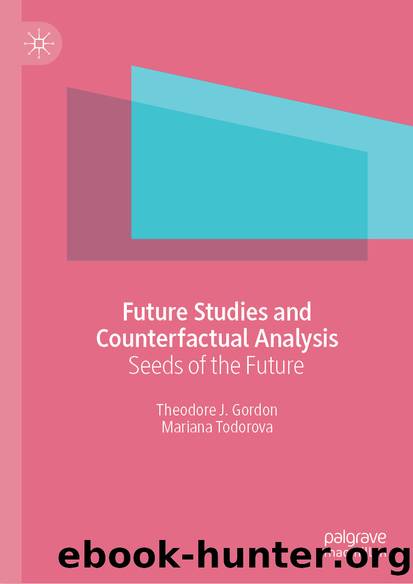Future Studies and Counterfactual Analysis by Theodore J. Gordon & Mariana Todorova

Author:Theodore J. Gordon & Mariana Todorova
Language: eng
Format: epub
ISBN: 9783030184377
Publisher: Springer International Publishing
He had lost his ability to make effective decisions. One of his many psychological tests required him to list possible options that would be appropriate to social situations presented by the neurologist. He listed alternatives at great length, but in the end said, âAnd after all this, I still wouldnât know what to do.â And, even more telling, he said that where once he had strong emotions, he now had no reactions, and he was neutral.
Elliot had retained the ability to reason but not the ability to decide.
To a much reduced degree, Iâve been there, and you have too, most probably. Imagine facing a decision; start by making a list of alternatives. Without passion about one or the other, the alternatives merge. Why is one better than another? Because it excites us. Neutrality, the lack of emotion, is the enemy of action.
What they taught us may be wrong. Make decisions coolly, remove emotion when you consider the alternatives, they said. Yet emotions may be crucial to good decisions.
How does the glider pilot know where the next thermal is and the boater know where the sandbars are under the surface? How do the best diagnosticians know the disease when it differs from the expected symptoms? How do effective executives choose the right path in a flash of insight? The nature of this decision making talent is still a mystery. From the tantalizing glimpses of emerging neuroscience, from studies of animal behavior, from studies of memory and inferences drawn from them, we can see the vague shape of the nature of talent in decision making. The prerequisites are: emotion, perception, and experience.
Emotion is important; confronted with alternatives, the talented decision maker believes he knows whatâs right; he chooses what he thinks is right with a sense of urgency, conviction, and passion. There is a will to act. That doesnât make it right, of course.
Perception is important to decision talent. Good decision makers seem open to cues that lie below the level of conscious perception. There can be signals like âblindsightâ and body language that generate cues without conscious recognition. You probably know more than you think you know.
Experience is also involved. The old man at Mavens, Inc. made good guesses because he had the foundation on which to build. Savor experience, cultivate it.
You argue: Experience can lock you into old patterns of behavior that worked in the past but are not suited to the future or lead you to reject a new idea because âwe tried it once and it didnât work.â In complex systems, history may be a poor indicator of future circumstances; not only may history not repeat itself, it may be positively misleading. So what good is experience?
We answer: The experience weâre talking about is not the rote reenactment of old decisions but the wisdom drawn from the synthesis of real-world experiments. Experience is only one factor in making good decisions. It works best when conditions surrounding the decision are like they were. Without experience, weâd be starting over every time we placed a bet.
Download
This site does not store any files on its server. We only index and link to content provided by other sites. Please contact the content providers to delete copyright contents if any and email us, we'll remove relevant links or contents immediately.
| Anthropology | Archaeology |
| Philosophy | Politics & Government |
| Social Sciences | Sociology |
| Women's Studies |
The remains of the day by Kazuo Ishiguro(8961)
Tools of Titans by Timothy Ferriss(8357)
Giovanni's Room by James Baldwin(7313)
The Black Swan by Nassim Nicholas Taleb(7097)
Inner Engineering: A Yogi's Guide to Joy by Sadhguru(6780)
The Way of Zen by Alan W. Watts(6589)
Asking the Right Questions: A Guide to Critical Thinking by M. Neil Browne & Stuart M. Keeley(5747)
The Power of Now: A Guide to Spiritual Enlightenment by Eckhart Tolle(5740)
The Six Wives Of Henry VIII (WOMEN IN HISTORY) by Fraser Antonia(5492)
Astrophysics for People in a Hurry by Neil DeGrasse Tyson(5172)
Housekeeping by Marilynne Robinson(4429)
12 Rules for Life by Jordan B. Peterson(4298)
Double Down (Diary of a Wimpy Kid Book 11) by Jeff Kinney(4257)
The Ethical Slut by Janet W. Hardy(4235)
Skin in the Game by Nassim Nicholas Taleb(4231)
Ikigai by Héctor García & Francesc Miralles(4228)
The Art of Happiness by The Dalai Lama(4118)
Skin in the Game: Hidden Asymmetries in Daily Life by Nassim Nicholas Taleb(3985)
Walking by Henry David Thoreau(3948)
